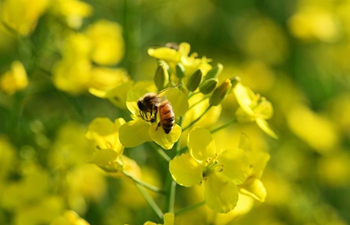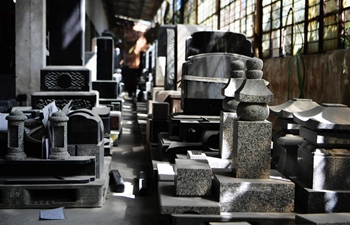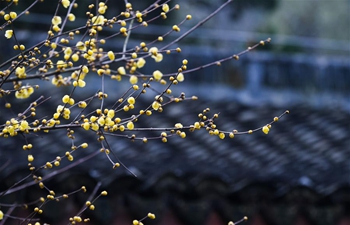CHICAGO, Jan. 20 (Xinhua) -- By tweaking the recipe for coaxing human stem cells into insulin-secreting beta cells, researchers at Washington University School of Medicine in St. Louis find that the resulting cells are more responsive to fluctuating glucose levels in the blood.
For the study, the researchers grew beta cells from human stem cells, but made numerous changes to the "recipe" for producing insulin-producing beta cells by treating the cells with different factors at different times as they grew and developed to help the cells mature and function more effectively.
After this process was complete, the researchers transplanted the beta cells into diabetic mice with suppressed immune systems so that they wouldn't reject the human cells. Those transplanted cells produced insulin at levels that effectively controlled blood sugar in the mice, functionally curing their diabetes for several months.
"Previously, the beta cells we manufactured could secrete insulin in response to glucose, but they were more like fire hydrants, either making a lot of insulin or none at all," said principal investigator Jeffrey R. Millman, an assistant professor of medicine and of biomedical engineering at the university. "The new cells are more sensitive and secrete insulin that better corresponds to the glucose levels."
The researchers can't predict when such cells may be ready for human trials but believe there are at least two ways that stem cell-derived beta cells could be tested in human patients.
"The first would be to encapsulate the cells in something like a gel, with pores small enough to prevent immune cells from getting in but large enough to allow insulin to get out," Millman said. "Another idea would be to use gene-editing tools to alter the genes of beta cells in ways that would allow them to 'hide' from the immune system after implantation."
The study was published on Jan. 17 in the journal Stem Cell Reports.

















